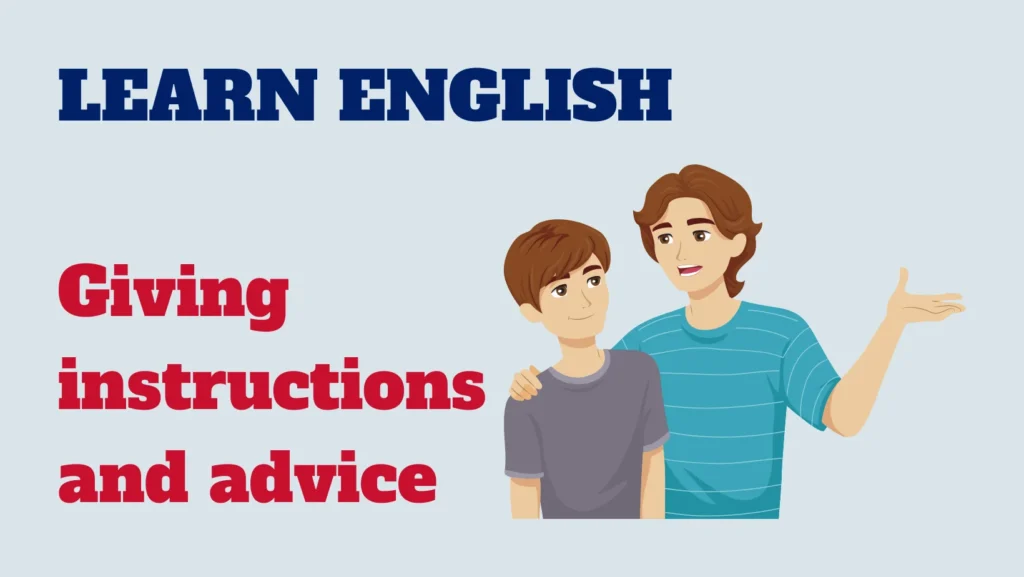When you’re learning a new language like English, mastering imperative expressions is important. These expressions allow you to give orders, instructions, or advice to someone.

In this lesson, we’ll explore different ways to tell someone to do something in English, along with some tips for using them correctly.
Use the imperative
The imperative is the verb form used to give orders or instructions. It is primarily used for verbs in the second person singular (you) and first and second person plural (we, you).
To form the imperative, use the base form of the verb without the subject.
For example:
Eat your lunch.
Do your homework.
Let’s go out together.
Employ advisory expressions
In English, there are specific expressions for giving advice in a polite and respectful manner. These expressions are useful when you want to suggest rather than command.
Here are some examples:
You should + infinitive verb
Example:
You should study for your exam.
It would be better to + infinitive verb
Example:
It would be better to take an umbrella.
Could you + infinitive verb
Example:
Could you pass me the salt, please?
Use linking words
To make your instructions clearer and more fluid, it’s wise to use linking words.
Here are some examples of commonly used words and expressions:
First:
First, peel the apples.
Next:
Next, add the sugar.
After that:
After that, heat the pan.
Be polite
When giving instructions, it’s essential to use a polite and respectful tone. Use polite formulas to show your consideration for the person you’re speaking to.
Please
Example:
Can you pass me the book, please?
Thank you
Example:
Thank you for closing the door on your way out.
Excuse me
Example:
Excuse me, could you repeat that slowly?
Knowing how to give instructions and advice in English is crucial for effective and polite communication. By using the imperative, advisory expressions, linking words, and polite formulas, you’ll be able to convey your ideas and requests clearly and respectfully. Remember to practice these different expressions to naturally integrate them into your language repertoire. Happy practicing and communicating in English!



